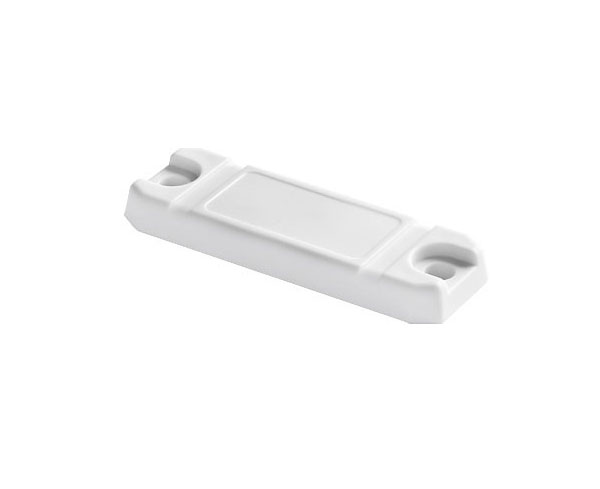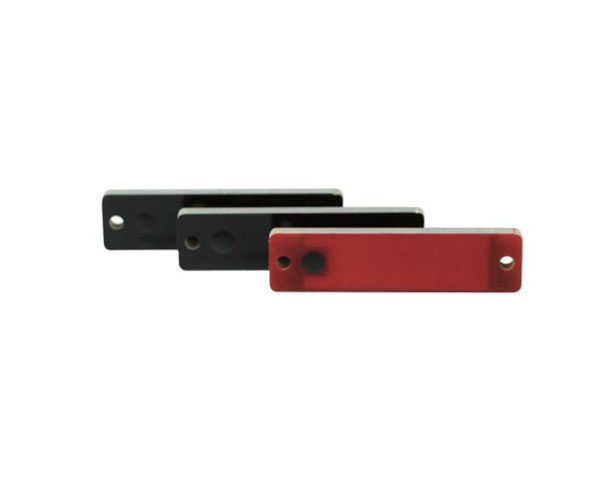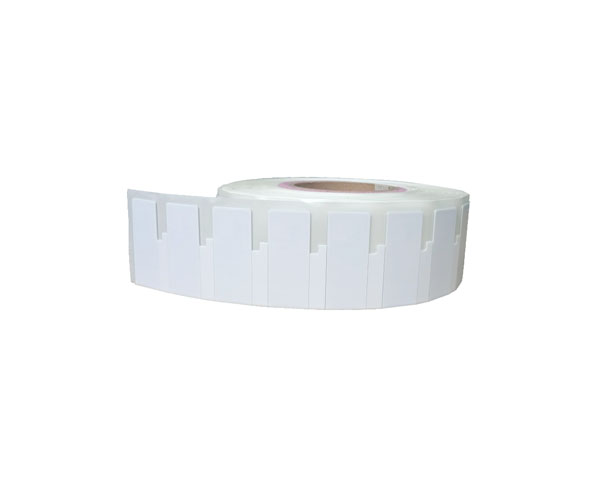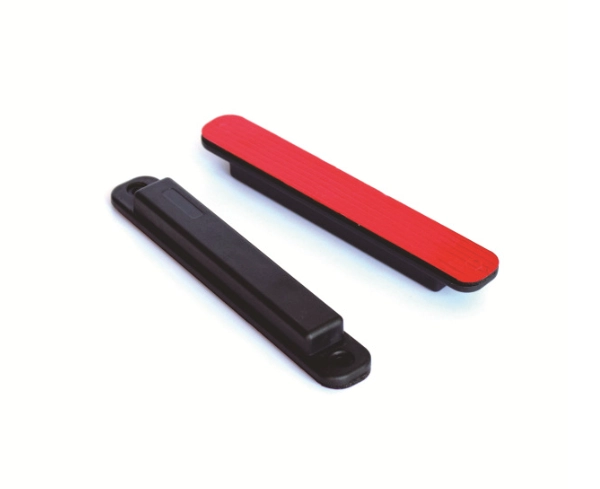When you’re mounting RFID tags on metal surfaces or metal products, you should be aware that if you use non metal mount RFID tags, your system will not function as desired as the metal will detune any passive RFID tag that is not designed to be placed on metal. Using tags that are specifically calibrated to the materials you need to track makes reading, tracking, and inventorying them easier and provides for greater read range. RFID metal tags are typically rugged, difficult to damage, and easy to weld, screw or otherwise attach.
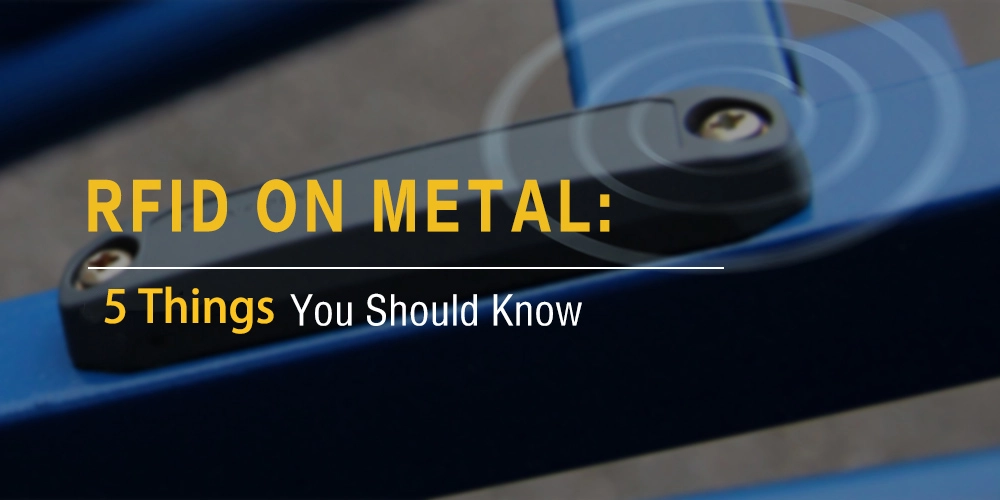
Why RFID Tags are Susceptible to Metal Interference?
As we all know, RFID tags transmit information through radio frequency signals. However, UHF signals are easily reflected by metal and absorbed by water. For example, our body is a good RF signal barrier because of the large amount of water. And when you use ordinary RFID tags to manage IT assets, they may not work due to interference from metals. Why?
RFID reader antennas have the ability to absorb RF energy. But metal causes eddy currents around the RFID reader, which reduces the efficiency of the RFID electromagnetic field. These eddy currents also cause its magnetic field to be perpendicular to the metal surface. And these perpendicular magnetic fields will render the reader area ineffective.
In addition, the metal will also cause additional parasitic capacitance. This can cause the RFID reader and electronic tag antenna to detune and disrupt system performance. Eventually, in some bands, the reflected electrons from the metal will interfere with the RFID tag and RFID reader.
As a result, when RFID tags are used in applications with many metallic materials, the RF performance will be significantly reduced. Although this is a huge challenge for RFID applications, there are some good solutions such as RFID anti-metal tags.
What is RFID Anti-Metal Tag?
Anti-metal tags are specially designed for complex environments such as metal. Based on the traditional metal tags, special metal-resistant materials are added to make them work well on metal surfaces.
RFID anti-metal tags are characterized by long reading distance, high sensitivity, heat resistance, and strong physical properties. They are very suitable for various metal environments, such as medical equipment management. Their main features are as follows.
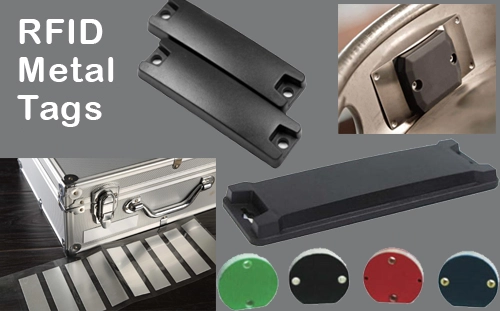
- Not only are they highly metal-resistant, but they can also withstand high temperatures (up to 200°C) as well as mechanical shocks and strong vibrations.
- Strong resistance to chemical substances such as hydrochloric acid and sulfuric acid. RoHS certified products will have a stronger level of protection than other similar products.
- It has stable performance even when working in extreme environments such as high temperature applications.
- Compliance with international standards such as ISO15693 and ISO18000-3.
- Good reading performance, even further than reading in the air.
- High protection level up to IP63, and some UHF anti-metal tags can reach IP68.
What are The Common RFID Anti-Metal Tags?
YIIRO provides a collection of Mount on Metal RFID tags with UHF 860-960 MHz frequency that are designed to excel in metallic environments such as metal surfaces and products. The mount on metal RFID tags are designed to be resistant to interference from metal, be durable and long range reading. Tags of this kind are made of different materials to fulfill diverse needs some of them are ABS (ultrasonically sealed) IP64, glass fiber – PCB FR4, epoxy resin, ceramic, and etc. RFID anti-metal tags can be made into various styles and shapes, such as bars, squares and circles. Here are some YIIRO RFID anti-metal tags, if you want to know more, please feel free to contact us.
Each anti-metal tag has different characteristics. ABS anti-metal tag is packed with ABS engineering plastic. It is sun, water and heat resistant.
PCB and FR4 anti-metal tags can be small in size and are suitable for tool management and small electronic device tracking.
Metal-resistant stickers and epoxy resin metal-resistant labels are very low cost. They are well suited for high volume and limited budget applications.
Flexible metal labels can be bent and are suitable for sticking to uneven surfaces, such as metal cylinders.
Ceramic tags not only work on metal surfaces but also prevent transfer and removal. It is suitable for anti-counterfeit tracking applications.
What Applications are Anti-Metal Tags Suitable For?
The RFID metal tags are designed for tagging and tracking metallic assets in the manufacturing and logistics industries. Some of the specific applications for this type of device include item identification, process control, factory automation, access control and security, inventory control, supply chain management and large rental equipment. Other applications for the mount on metal tags are personnel tracking, indoor and outdoor use, windshield use, IT assets tracking and warehouse management.
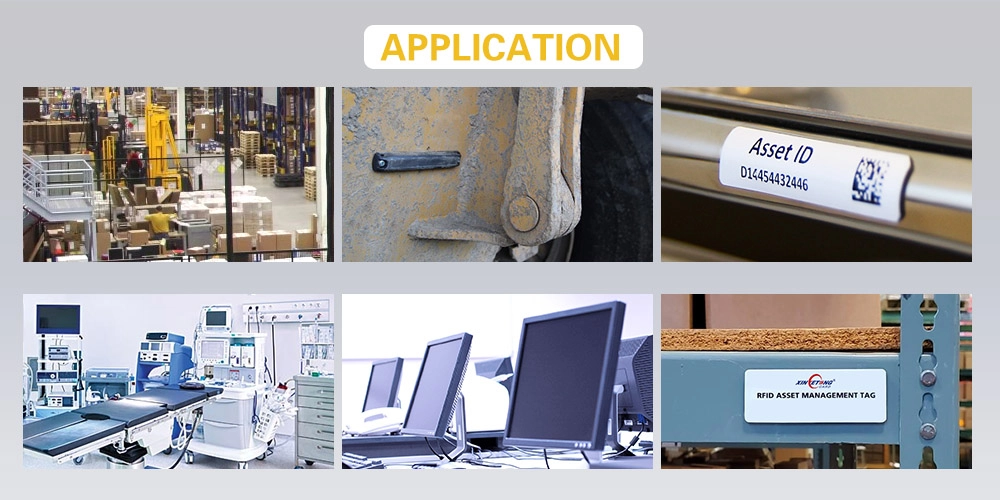
Metal-resistant tags solve the problem of RFID’s vulnerability to interference. It has attracted much attention since its inception and is favored by various industries. It is widely used in asset management, medical device management, etc. Common use scenarios are as follows:
- Warehouse asset management: shelf identification, metal asset management, etc.
- Indoor equipment management: tracking of household equipment products, company fixed assets management, etc.
- IT asset management: computer hosts, switches, server chassis, aluminum strips, etc.
- Metal sheet management: sheet classification, management, tracking, etc.
- Medical equipment management: large medical instruments, surgical instruments, etc.
- Outdoor asset management: electric power equipment, IT assets, pressure vessels, gas cylinders, etc.
- Mold production line management: parts process management, tool management, pallet management, etc.
- Logistics management: truck tracking, cargo tracking, etc.
How to Find Your Mount on Metal RFID Tag?
In selecting a tag for a particular application, we must consider many factors such as the price, physical size, material and shape of the tag.
However, more attention should be paid to the factors that will affect the performance of the tag. For example, what is the reading distance of the tag? What is the material and mounting surface of the tag? How to install? What is the application environment?
If you think RFID metal-resistant tags only need to be used on metal surfaces, you must change your mind. Because the tag is not directly attached to metal does not mean that it will not be interfered by metal. RFID tags are also susceptible to interference if there is a lot of metal around the place where the RFID tag is installed.
Therefore, when choosing an RFID on metal tag, you must judge carefully to ensure that the tag’s performance is stable and reliable. Feel free to browse our selection of RFID On Metal Tags. Our Experts are available to help you decide which tag is best for your application.
If you have questions about our RFID Readers, or which RFID Tags work best with them please feel free to contact our experts who would be happy to help!
